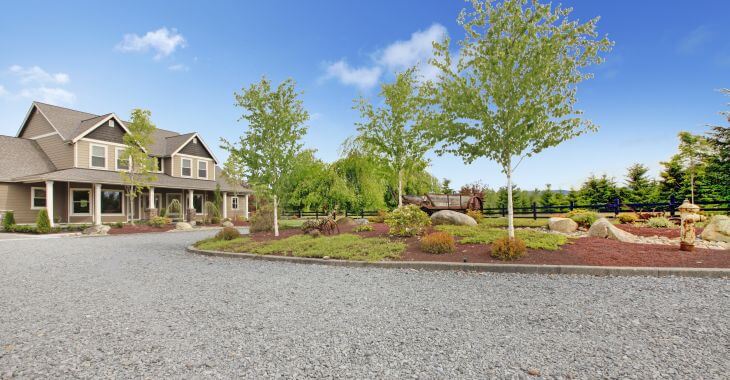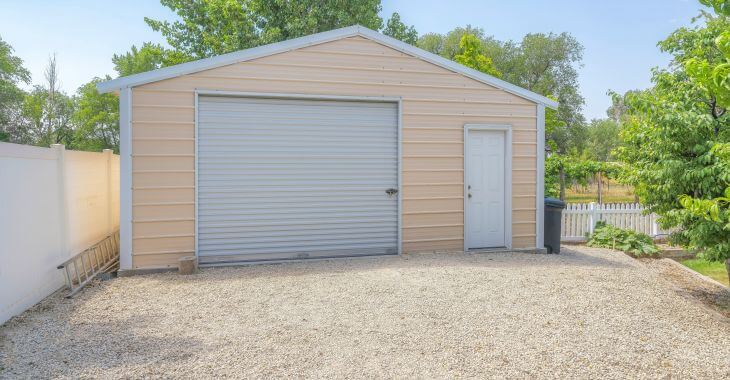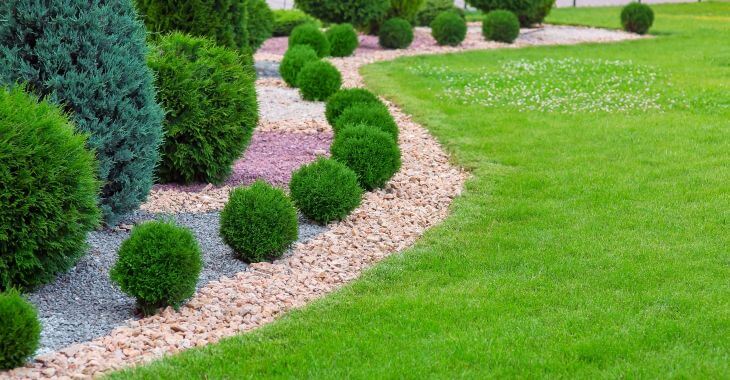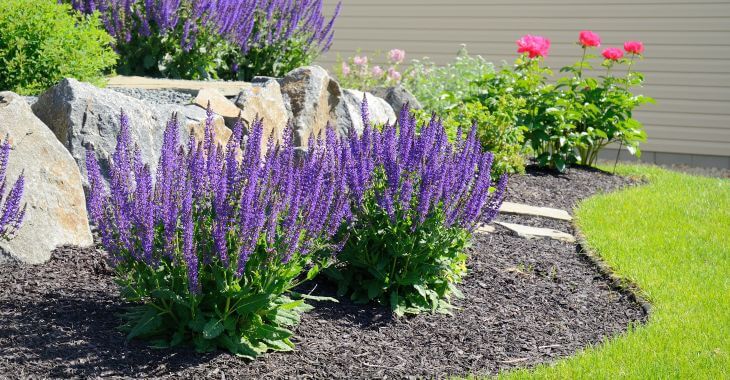What Is the Best Gravel for Driveway Leveling?

The selection of gravel for driveway leveling is a critical decision that directly impacts the durability, aesthetics, and functionality of the driveway. Gravel driveways are popular for their cost-effectiveness, versatility, and rustic appeal, but what is the best gravel for driveway leveling and surfacing?
Types of Driveway Gravel
Not all gravel is created equal, and understanding the characteristics of different types of driveway rocks is essential for achieving optimal results. The following are some of the best rocks for driveways:
1. Crushed Stone
Crushed stone is one of the most common choices for driveways. It is composed of angular stones that interlock, providing excellent stability and support. Crushed stone offers a clean, uniform appearance and is available in various sizes and colors.
- Best Uses: Ideal for driveways, crushed stone is also suitable for walkways, garden paths, and drainage projects.
- Best Types: Dense-graded crushed stone, such as ¾-inch or 1½-inch stone, is recommended for driveways due to its compact nature.
2. Pea Gravel
Composed of small, rounded stones, pea gravel provides a smooth and comfortable surface for driveways. It offers excellent drainage and is less prone to shifting or compacting than angular rocks.
- Best Uses: Suitable for driveways, pathways, and decorative landscaping projects.
- Best Types: ⅜-inch pea gravel is commonly used for driveways, providing a balance between stability and a comfortable walking surface.
3. Crushed Granite
Crushed granite is known for its durability and resistance to erosion. It has a rich, earthy color and can withstand heavy traffic without degrading.
- Best Uses: Excellent for driveways and walkways and as a base material for other landscaping projects.
- Best Types: ⅜-inch or ¾-inch crushed granite is often chosen for driveways due to its compact structure.
4. Limestone
Limestone gravel offers a smooth and attractive surface. It is resistant to weathering and erosion, making it a durable choice for driveways.
- Best Uses: Suitable for driveways, pathways and as a base material for pavers.
- Best Types: ⅜-inch or 1-inch limestone is commonly used for driveways.
5. Recycled Asphalt
Recycled asphalt provides a sustainable option for driveway gravel. It is cost-effective, durable, and environmentally friendly.
- Best Uses: Ideal for driveways, particularly for those seeking an eco-friendly solution.
- Best Types: Recycled asphalt is typically available in various sizes, with ¾-inch or 1½-inch being common for driveways.
6. River Rock
Benefits: River rocks offer a unique and aesthetically pleasing appearance. They come in various sizes and colors, providing a natural and decorative touch to driveways.
- Best Uses: Suitable for driveways but often used more for decorative landscaping features.
- Best Types: 1-inch to 3-inch river rock can be used for driveways, providing a distinctive look.
7. Quarry Process (QP)
Benefits: Quarry process gravel is a combination of crushed stone and stone dust, creating a stable and compact material. It is known for its excellent drainage properties.
- Best Uses: Ideal for driveways, as well as for use as a base material for patios and walkways.
- Best Types: ¾-inch or 1½-inch quarry process gravel is commonly used for driveways.
Considerations for Choosing the Best Gravel for Driveways
When determining the best driveway gravel for your project, there are many factors to consider, from local availability to cost, maintenance, and installation.
- Climate and Weather Conditions: Consider the climate of your region. Some gravels may be better suited to withstand freezing and thawing cycles.
- Budget and Cost: Different types of gravel come with varying costs. Consider your budget and weigh the cost against the desired aesthetic and functional benefits.
- Maintenance Requirements: Some gravels may require more maintenance than others. Pea gravel, for example, may need periodic replenishment due to its smaller size.
- Local Availability: Opt for gravel types readily available in your local area to minimize transportation costs and environmental impact.
- Compatibility with Landscape Design: Choose gravel that complements the overall aesthetic of your property. Consider factors such as color, size, and texture.
- Excavation and Grading: Properly excavating and grading the area can ensure proper drainage and prevent water accumulation.
- Edge Restraints: Using edge restraints, such as concrete or metal, is important to contain the gravel and prevent spreading.
- Compaction: It is vital to compact the gravel layers during installation to enhance stability and prevent settling.
Choosing the best gravel for driveway leveling involves considering factors such as durability, aesthetics, climate, and budget. Each type of gravel comes with its unique advantages, making it essential to match the gravel choice with the specific needs and preferences of the property owner.
By understanding the characteristics of different rocks and following proper installation techniques, individuals can create a driveway that not only stands the test of time but also enhances the overall appeal of their outdoor space.

If you are considering installing a gravel driveway, it is worth seeking the expertise of a landscaper or landscape supply expert to determine the best gravel for your driveway.

